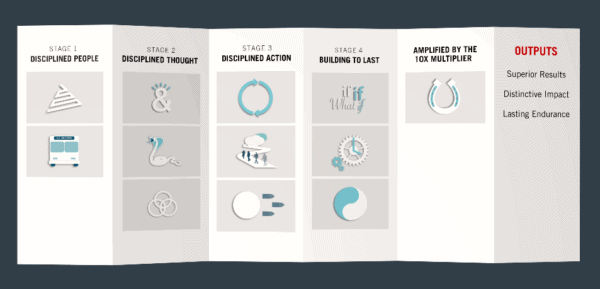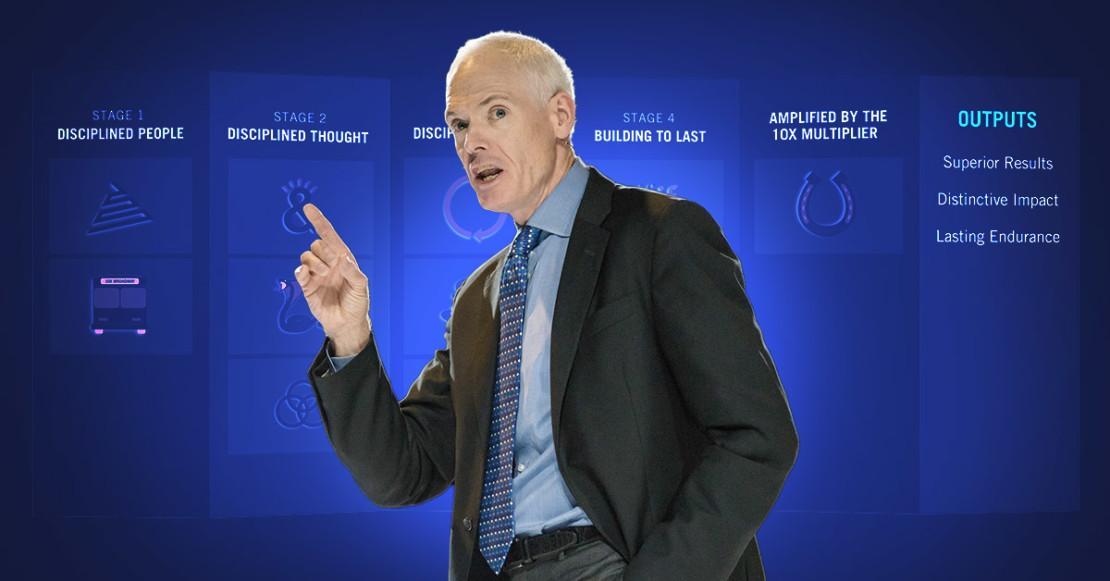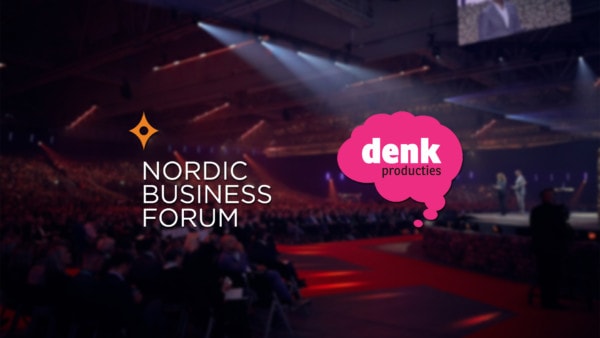25Mar2021
On 23-24 March, we were privileged to host a virtual masterclass with Jim Collins, a world-renowned researcher, author, and speaker. Over the course of the 2 half-days, 126 leaders from 13 different countries were challenged by Jim to find the roadmap to greatness. One of the most intriguing things that Jim shared with us was ‘the map’ – a framework that ties together all of his concepts from the past 30 years.
Here, we give you a brief overview of the map based on what Jim taught us during the course. You can also find a visualization of the framework on Jim’s website.
What Is the Map?
All of Jim’s ideas come from extensive research. He has spent the last three decades finding answers to the question: what makes great companies tick? From all that rigorous research have risen the concepts and insights that are included in the map.
The map is divided into two parts: inputs and outputs. The inputs section includes all the practices that it takes to become a great company, and it’s divided into 4 different stages. The outputs refer to the results and the destination; what is a great company.

Inputs: What It Takes to Build a Great Company?
Jim has divided the inputs into four stages; disciplined people, disciplined thought, disciplined action, and built to last.
Stage 1 – Disciplined People
- Reach for Level 5 Leadership. Cultivate getting the type of leaders and becoming the type of leader who leads to serve a cause and does so with humility.
- Practise First Who, Then What. Get the right people on the bus and on the right seats of the bus, and only then you figure out where to drive it.
Stage 2 – Disciplined Thought
- Embrace the Genius of the And. Look for how to have purpose and profit, long-term and short-term, execution and innovation, etc.
- Confront the Brutal Facts in the context of Stockdale’s Paradox. Confront the brutal facts and retain faith that you can and will prevail in the end.
- Clarify your Hedgehog. Make a series of decisions based on what you are passionate about, what you can be the best in the world at, and what drives your economic engine.
Stage 3 – Disciplined Action
- Turn the flywheel. Build momentum by making a series of good disciplined decisions and executing them well. Then you will get a click on the flywheel.
- Hit Your 20-mile Marches. Relentlessly try to hit self-imposed performance markers, not just for years but for decades.
- Fire Bullets, Then Cannonballs. First fire bullets to get empirical validation of new ideas that they will work. Then, convert them into large cannonballs to scale your ideas up.
Stage 4 – Building to last
- Practise Productive Paranoia. Understand the five stages of decline, and practise constant productive paranoia.
- Shift from being a Time-teller into being a Watch-maker. Build the right mechanisms so that the company can succeed far beyond the presence of any single leader or any single great idea.
- Preserve the Core and Stimulate Progress. Hold true to your core values, and change your practices. Hold true to your purpose, and change your strategies.
- Set Big Hairy Audacious Goals. Set BHAGs as there is a difference between merely having a goal and becoming committed to a huge, daunting challenge.
Jim emphasizes that at the end, you have a 10 x multiplier: the return on luck. Take into account that it’s not about being lucky, it’s about what you eventually do with the luck you get whether it’s good or bad. This is the amplifier of everything else in the framework. “About 50% of great leadership is what you do with the unexpected.”
Outputs: What Is a Great Company?
“Big doesn’t equal great, and great does not equal big.” Jim defines a great company being one that achieves three different outcomes. Great companies create superior results, have a distinctive impact, and obtain lasting endurance.
- Superior results. “You win at your game.” In order to be a great company, it’s not enough that you have a great purpose and that you treat your customers well. You need to deliver superior results.
- Distinctive impact. “You make an indelible impact in the world that you touch.” Your impact can be for example the distinctive thing that you do, or it can derive from the level of excellence you deliver.
- Lasting endurance. “You are able to do this over a very long time.” A truly great company is not dependent on a single leader or specific circumstances. They last no matter what.

 by:
by: 
